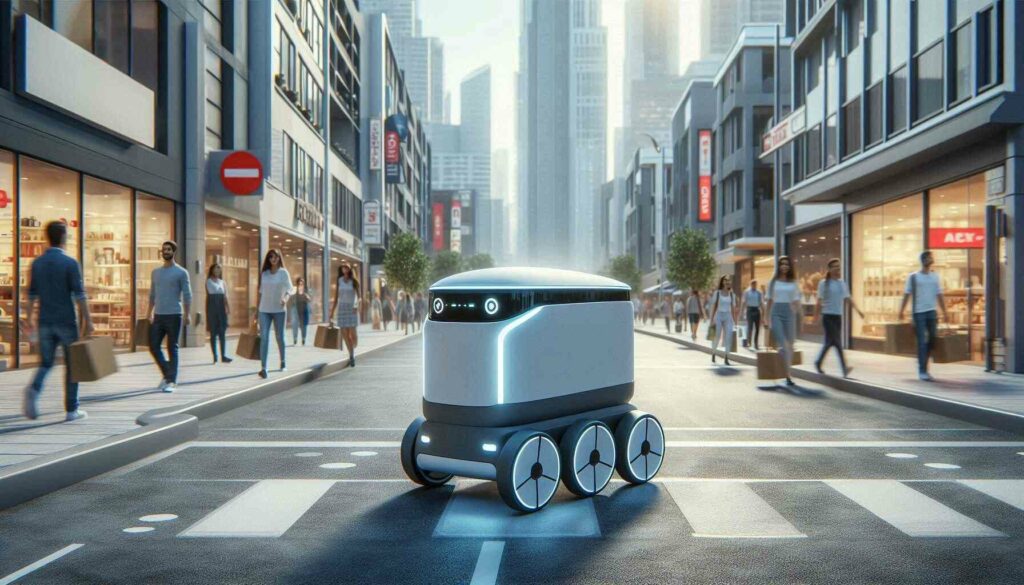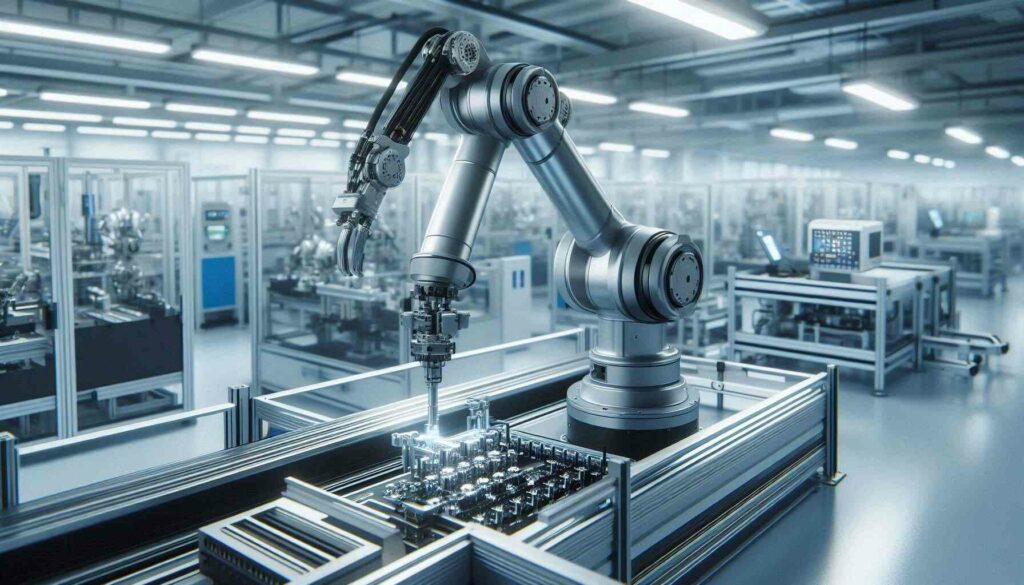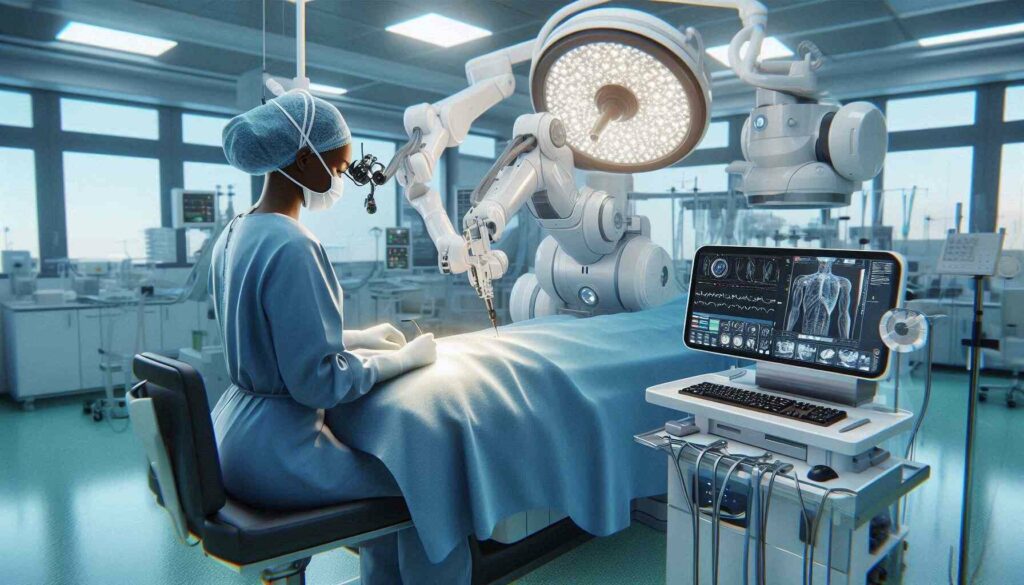
AI CERTS
4 months ago
AI Robotics Applications Course The Path to Future Automation
In today’s technology-driven world, the fusion of artificial intelligence (AI) and robotics is revolutionizing industries, redefining workflows, and shaping the future of innovation. Robots are no longer limited to repetitive, rule-based tasks; with AI integration, they can learn, adapt, and operate autonomously in dynamic environments. To thrive in this rapidly evolving field, enrolling in an AI robotics applications course is crucial.

These courses equip learners with the knowledge and skills to harness the power of AI and robotics to solve complex problems, automate processes, and create intelligent systems. From healthcare to manufacturing, logistics to agriculture, the applications of AI robotics are vast, making this field an exciting frontier for aspiring professionals and seasoned experts alike.
In this detailed article, we’ll explore the value of an AI robotics applications course, its diverse career pathways, and how this learning opportunity can future-proof your career in a competitive job market.
Why Choose an AI Robotics Applications Course?
The Evolution of Robotics
Robotics has been part of industrial and technological landscapes for decades. Traditional robots, while efficient, were programmed to perform narrowly defined tasks. AI has transformed these machines into smart systems capable of understanding, reasoning, and adapting to complex scenarios. This evolution is a game-changer for industries and society at large.
Increasing Demand for AI Robotics Skills
According to the World Economic Forum, the adoption of AI and automation is expected to create 97 million new jobs by 2025. Many of these roles will require proficiency in both AI and robotics. Enrolling in an AI robotics applications course prepares learners to meet this demand, enabling them to work in cutting-edge industries and solve real-world problems.
Career Opportunities
Graduates of AI robotics courses often find rewarding careers in diverse industries, including:
- Healthcare: Developing AI-driven robotic surgical assistants and rehabilitation devices.
- Automotive: Building autonomous vehicles and robotic assembly systems.
- Agriculture: Creating robots for precision farming and automated harvesting.
- Logistics: Designing warehouse automation systems and robotic delivery solutions.
- Research and Development: Innovating robotics for space exploration and defense.
By enrolling in an AI robotics applications course, you position yourself for roles in these high-growth areas while gaining expertise in cutting-edge technologies.
What to Expect from an AI Robotics Applications Course

Comprehensive Curriculum
An AI robotics applications course is designed to offer a blend of theoretical foundations, practical skills, and project-based learning. While the specifics may vary between institutions, most programs include the following core areas:
| Module | Description | Skills Developed |
| AI Fundamentals | Machine learning, neural networks, natural language processing | Building intelligent systems |
| Robotics Engineering Basics | Sensors, actuators, mechanics, and kinematics | Designing and assembling robotic components |
| Programming for Robotics | Hands-on coding with Python, TensorFlow, and Robot Operating System (ROS) | Writing and debugging efficient robotics software |
| Computer Vision and Perception | Object detection, image processing, and navigation | Enabling robots to see and interpret their environment |
| Robotic Process Automation | Automation of repetitive tasks in industrial and business contexts | Developing scalable automation workflows |
| AI Ethics and Safety | Ethical implications, risk management, and regulatory compliance | Responsible AI deployment |
| Capstone Project | Development of a fully functional AI robotics solution | Applying end-to-end knowledge to solve a real problem |
Hands-on projects form the backbone of an AI robotics applications course, allowing students to design and implement their robotic solutions.
Top Certifications for AI Robotics Applications
To complement an AI robotics applications course, obtaining industry-recognized certifications can significantly boost your career prospects. These certifications validate your expertise in AI and robotics, making you a sought-after professional in the job market.
1. AI+ Robotics Certification by AI CERTs
This certification provides an in-depth understanding of AI-driven robotics, covering topics like machine learning, robotic vision, and advanced automation.
Learn More
2. Certified Robotics Programming Associate (CRPA)
Offered by the International Association of Robotics, this certification focuses on programming for robotic systems, emphasizing practical applications.
Learn More
3. Machine Learning and Robotics Certification by Stanford Online
This prestigious program covers the intersection of machine learning and robotics, emphasizing algorithms and system design.
Learn More
4. Certified AI & Robotics Practitioner (CARP)
Provided by the Institute of AI Professionals, CARP prepares learners to implement AI-driven robotics solutions across industries.
Learn More
5. Robotics and Autonomous Systems Professional Certificate by edX
This program covers foundational robotics concepts and their applications in AI systems, making it ideal for beginners and intermediate learners.
Learn More
Real-World Applications of AI Robotics
Transforming Healthcare
AI-powered robots are transforming healthcare by enhancing precision, efficiency, and accessibility.
- Surgical Robotics: AI-integrated robots assist surgeons in performing complex procedures with high precision, reducing recovery times and improving outcomes.
- Elderly Care: Robots provide companionship and assistance to the elderly, helping with mobility, medication, and monitoring.
- Diagnostics and Monitoring: AI robots analyze medical data, identify anomalies, and monitor patients’ health in real time.
An AI robotics applications course often focuses on these revolutionary healthcare applications.
Advancing Manufacturing
Manufacturing has embraced AI robotics for efficiency and accuracy.
- Smart Assembly Lines: Robots powered by AI adapt to changes in production processes, increasing flexibility and reducing downtime.
- Quality Assurance: AI robotics systems inspect products with unmatched precision, ensuring high-quality output.
- Warehouse Automation: Robots streamline inventory management, improve storage efficiency, and reduce operational costs.
Learning these processes is a key part of any comprehensive AI robotics applications course.

Revolutionizing Agriculture
In agriculture, AI robotics is addressing challenges like labor shortages and sustainability.
- Autonomous Farming Equipment: Tractors and harvesters equipped with AI systems operate independently, optimizing productivity.
- Precision Agriculture: AI robots analyze soil and weather data to make informed decisions about planting, irrigation, and harvesting.
- Pest Control: Drones with AI capabilities target pest-infested areas, minimizing pesticide use and environmental impact.
An AI robotics applications course provides the expertise needed to innovate in the agricultural sector.
Enhancing Transportation and Logistics
AI robotics has revolutionized the way goods are transported and delivered.
- Autonomous Vehicles: AI-powered drones and trucks are used for delivering goods safely and efficiently.
- Last-Mile Delivery: Robots complete doorstep deliveries, reducing human dependency and improving speed.
- Supply Chain Management: AI robotics ensures smooth operations by predicting demand, managing inventory, and optimizing delivery routes.
An AI robotics applications course delves into these transformative logistics systems.
The Future of AI Robotics
The future of AI robotics is bright, with advancements that promise to reshape industries and enhance human lives.
Trends to Watch
- Human-Robot Collaboration
Collaborative robots (cobots) are designed to work alongside humans in shared spaces, enhancing productivity. - AI in Smart Cities
Robots equipped with AI help manage traffic, maintain public safety and optimize urban infrastructure. - Eco-Friendly Robotics
Sustainable robots are being developed to aid in waste management, energy conservation, and environmental restoration. - Personal Robots
AI robots are entering homes as personal assistants, security devices, and companions. - Space Robotics
AI-driven systems are essential for future missions to the Moon, Mars, and beyond.
Conclusion
An AI robotics applications course offers a gateway to one of the most exciting and impactful careers of the 21st century. With industries increasingly relying on intelligent systems, the demand for skilled professionals continues to rise. Whether you aspire to innovate in healthcare, agriculture, or space exploration, these courses provide the foundation you need to excel.
Enroll in an AI robotics applications course today and be at the forefront of the robotics revolution!
"Have questions or need more information? Our team at AI CERTs is here to help you unlock your potential in AI and robotics. Reach out today, and let's take your career to the next level
Here are our other articles you might be interested :